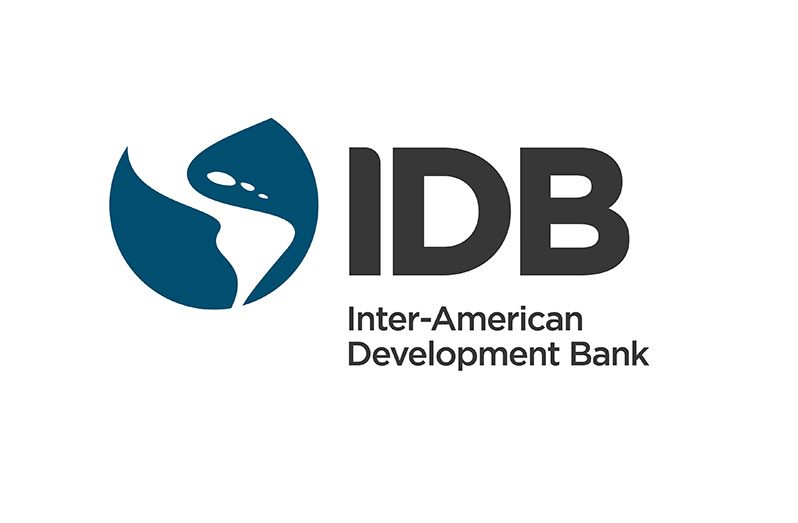THE Inter-American Development Bank (IDB) and its private-sector arm, IDB Invest, expect to close the year 2021 with $19.5 billion in new financing for Latin America and the Caribbean, as they helped countries recover from the pandemic and usher in an era of sustainable and inclusive growth.
According to a release, the financing is the second-highest annual total in the history of the IDB and IDB Invest and helps countries invest in priorities ranging from COVID-19-era healthcare and digitalisation to climate-change action, supply chains and education. The funding will also help reduce gender inequality, expand entrepreneurial ecosystems, and empower small and mid-size companies, which account for over two-thirds of the Region’s jobs.
The combination of IDB loan approvals ($14 billion) and expected IDB Invest financial commitments ($5.5 billion) and private-sector mobilisations ($2.8 billion) totalled $22.3 billion. Latin America and the Caribbean is the Region hardest hit by the pandemic. Home to about eight per cent of the world’s population, it accounts for almost a third of all COVID-19 deaths – over 1.5 million people. The Region also continues to face high inequality and serious economic and social challenges, the bank noted.
“This year, we demonstrated how a 21st-century IDB can empower countries to overcome unimaginable challenges and pave the way to a new decade of prosperity. We did so by listening carefully to our clients and member countries and by leveraging our exceptional human capital to create innovative financing and private-sector partnerships that will accelerate the Region’s recovery,” said IDB President Mauricio Claver-Carone. “The pandemic created unprecedented challenges, but it also opened historic opportunities for Latin America and the Caribbean to grow, especially in areas including digitalisation, nearshoring and supply chains – and we are proud to be there, focused on helping countries seize those opportunities,” he added.
FROM VACCINES TO RECOVERY ECOSYSTEMS
In total, the IDB approved 103 sovereign guaranteed projects in 2021 for a total of $14 billion, while disbursements are expected to reach $12.1 billion. In the context of COVID-19, financing helped countries secure life-saving vaccines and increased access to credit, so that small and mid-size companies, the main drivers of employment, can expand their businesses.
New projects and financing will accelerate digitalisation, so countries can improve public services, expand education access, increase transparency and combat corruption. Funding will also help improve digital-skills training to enrich the Region’s human capital.
Amid a historic reconfiguration of international trade, the IDB approved $2.3 billion to strengthen regional supply chains, nearly doubling the average amount of the three years before the pandemic. This will help countries take advantage of a tangible new opportunity, amplified by the pandemic and the global supply-chain crisis, to attract foreign direct investment and increase exports of goods and services.
The IDB also worked with 16 countries to identify critical export and supply-chain advantages, including, for example, in Costa Rica’s semiconductor sector and the textile sector in Central American countries.
GENDER, CLIMATE CHANGE AND SMALL COUNTRIES
In 2021, the IDB continued to make it easier for countries to accelerate pandemic recovery, while simultaneously addressing critical, longstanding issues, such as climate change and gender inequality.
The IDB launched its Amazon Initiative and approved about $4.5 billion in resources for climate-related operations, the highest amount ever. The IDB also took a leading role among multilateral development banks at COP26, the annual United Nations conference on climate change, announcing a plan to fully align operations with the Paris Agreement and provide $24 billion for climate and green finance over the next four years.
Of all projects approved in 2021, nearly 70 per cent included one or more components to tackle climate change, while 75 per cent addressed gender issues. Almost 40 per cent of approvals went to small and vulnerable countries. These numbers are aligned with the bank’s institutional priorities and its blueprint for economic recovery, Vision 2025.
INSTITUTIONAL REFORMS DRIVE EFFICIENCY AND PRIVATE-SECTOR INVESTMENT
The IDB also piloted a streamlined process for projects that slashed approval times by 30 per cent, enabling the bank to quickly meet the needs of its 26 regional member countries.
“The IDB stepped up and delivered the second-highest level of approvals for sovereign-guaranteed operations in the bank’s history in response to the pandemic, natural disasters and multiple other crises,” President Claver-Carone said. “I am confident that as we implement new initiatives and roll out ongoing operational efforts, the IDB will be even more productive in 2022 to meet the needs of Latin America and the Caribbean as the region’s partner of choice.”
In addition, the IDB dramatically scaled up its engagement with the private sector by creating the Private Sector Partners Coalition. The Coalition began with 40 of the world’s leading companies and has since expanded to over 160 of the world’s most innovative firms. Its activities span 13 working groups in areas including nearshoring, climate change, women’s empowerment and digital transformation. The Coalition is creating a resource-mobilisation platform to identify investment opportunities and channel new technology, know-how and other private-sector resources to the Region, the release said.




.png)









